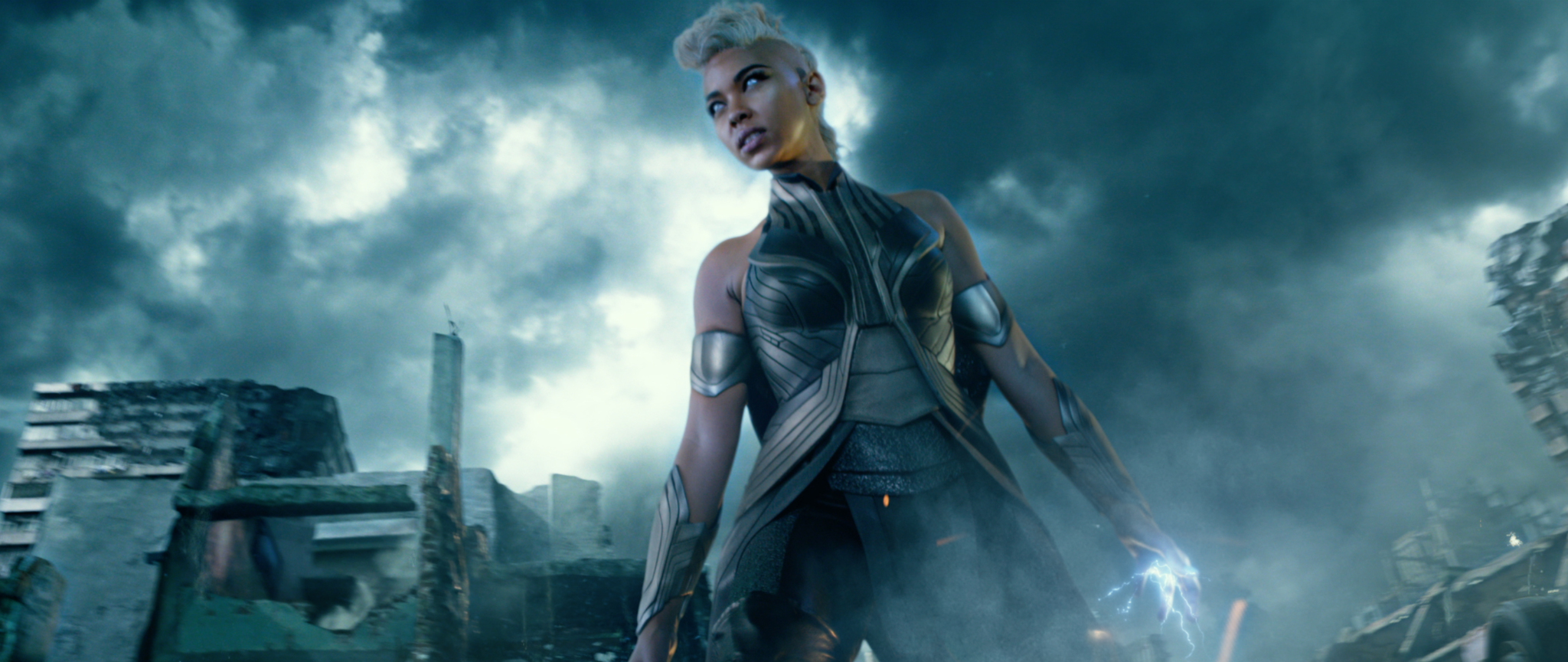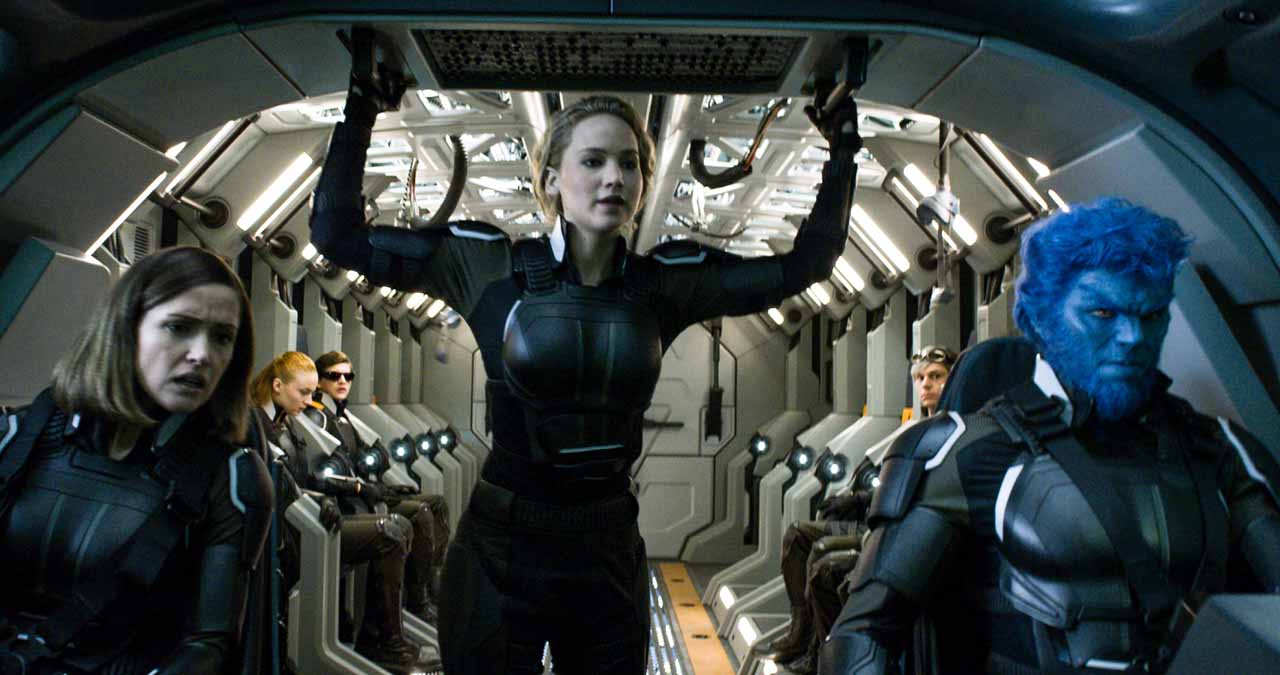🎬 X-Men: Apocalypse (2016)

X-Men: Apocalypse (2016) Review
Directed by Bryan Singer, X-Men: Apocalypse (2016) is the third installment in the prequel trilogy of the X-Men franchise. The film takes on an ambitious narrative, introducing one of the most iconic villains from the comics: Apocalypse. While the movie boasts a star-studded cast, stunning visuals, and high-stakes action, it struggles to balance its sprawling story and character arcs, leading to a mixed reception from audiences and critics alike.
Plot Overview
Set in the 1980s, the film begins with the awakening of En Sabah Nur, also known as Apocalypse (Oscar Isaac), an ancient and immensely powerful mutant who believes the world has devolved into chaos in his absence. Apocalypse sets out to “cleanse” the Earth by destroying civilization and rebuilding it in his image. To aid his mission, he recruits four mutants as his Horsemen: Magneto (Michael Fassbender), Storm (Alexandra Shipp), Psylocke (Olivia Munn), and Angel (Ben Hardy).
Meanwhile, Charles Xavier (James McAvoy) and his team of young mutants, including Jean Grey (Sophie Turner), Cyclops (Tye Sheridan), and Nightcrawler (Kodi Smit-McPhee), must join forces with Raven (Jennifer Lawrence) and Beast (Nicholas Hoult) to stop Apocalypse and his Horsemen. The battle culminates in a high-stakes showdown that tests the limits of the X-Men’s abilities and unity.
Performances
The cast delivers solid performances, with some standout moments that elevate the film. Michael Fassbender’s portrayal of Magneto is particularly compelling, as his character grapples with immense personal loss and a desire for vengeance. Fassbender brings depth and nuance to Magneto, making him a sympathetic yet dangerous figure.
James McAvoy and Jennifer Lawrence reprise their roles as Charles Xavier and Raven, respectively, but their performances feel somewhat constrained by the script. McAvoy captures Xavier’s idealism and compassion, while Lawrence’s Raven struggles with her role as a reluctant leader. However, both characters lack significant development compared to earlier films.
Oscar Isaac’s Apocalypse, while menacing in presence, is hindered by the character’s one-dimensional motivation and heavy prosthetics that obscure much of Isaac’s performance. The younger cast members, including Sophie Turner as Jean Grey and Tye Sheridan as Cyclops, bring fresh energy to the franchise, though their characters’ arcs feel underexplored amidst the crowded narrative.
Visuals and Action
Visually, X-Men: Apocalypse is a spectacle, with elaborate set designs, impressive CGI, and thrilling action sequences. The depiction of Apocalypse’s powers, particularly his ability to disintegrate and rebuild matter, is visually striking. The climactic battle features a mix of individual fights and large-scale destruction that showcase the mutants’ powers.
One of the film’s highlights is the Quicksilver (Evan Peters) rescue sequence, which combines humor, creativity, and technical brilliance. Set to a nostalgic 1980s soundtrack, the scene is a standout moment that provides levity amidst the film’s darker tone.
Themes and Writing
Thematically, X-Men: Apocalypse explores ideas of power, responsibility, and identity. Apocalypse’s belief in survival of the fittest contrasts with Xavier’s vision of coexistence, highlighting the ideological divide that defines the franchise. However, these themes are often overshadowed by the film’s reliance on action and spectacle.
The screenplay, written by Simon Kinberg, attempts to juggle multiple character arcs and subplots, resulting in an uneven narrative. While some characters, like Magneto, receive compelling storylines, others, like Psylocke and Angel, are relegated to underdeveloped supporting roles. The dialogue often leans on exposition, which detracts from the emotional impact of key moments.
Strengths and Weaknesses
One of the film’s strengths lies in its ability to bring the X-Men universe to life with rich visuals and dynamic action. The young cast’s introduction adds a sense of renewal to the franchise, and moments of character interaction—such as the camaraderie between Cyclops, Jean, and Nightcrawler—hint at the potential for future films.
However, X-Men: Apocalypse falters under the weight of its ambitions. The crowded cast and sprawling plot leave little room for meaningful character development. Apocalypse, as the central villain, fails to leave a lasting impression due to his generic motivations and lack of depth. Additionally, the film’s pacing feels inconsistent, with a slow buildup that contrasts with a rushed and chaotic finale.
Conclusion
X-Men: Apocalypse is a visually impressive but narratively flawed entry in the X-Men franchise. While it delivers thrilling action and strong performances from its cast, the film’s inability to balance its ambitious story and ensemble of characters prevents it from reaching the heights of its predecessors.
For fans of the series, X-Men: Apocalypse offers moments of excitement and nostalgia, particularly through its homage to the comics and earlier films. However, those seeking a tightly woven and emotionally resonant narrative may find themselves underwhelmed. Despite its shortcomings, the film serves as a bridge to future stories in the X-Men universe, setting the stage for the next generation of mutants.